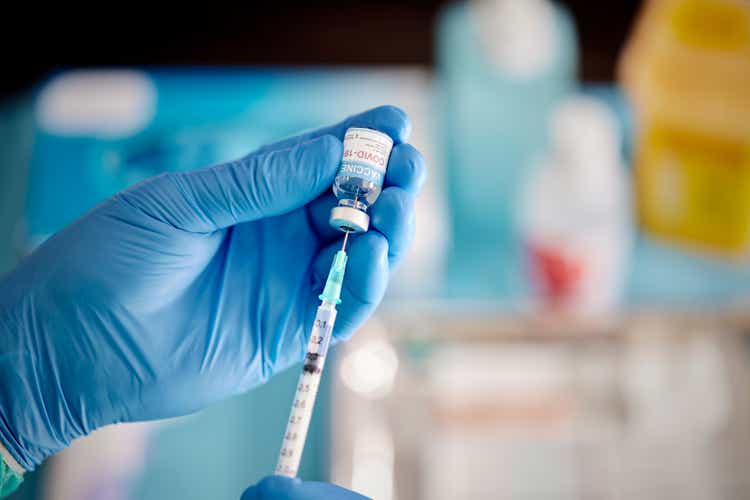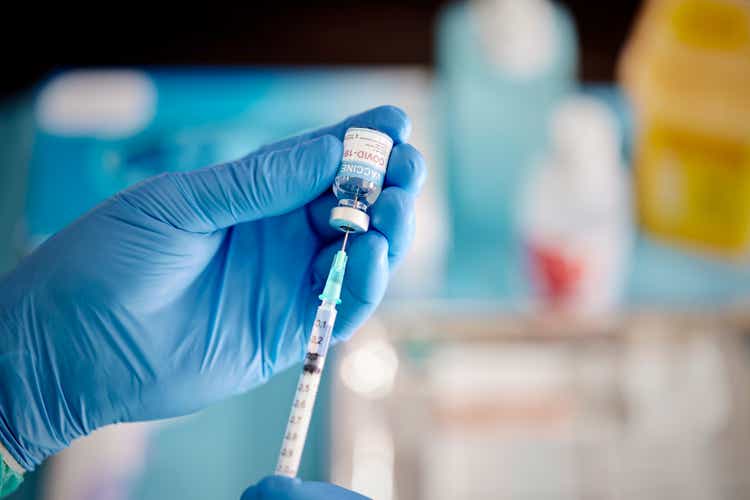
Morsa Images
Shares of several of the world’s largest vaccine makers fell significantly Friday, the day after President-elect Donald Trump announced he had selected vaccine critic Robert F. Kennedy Jr. to head the U.S. Department of Health and Human Services, which oversees vaccine authorizations for the U.S. market.
Pfizer (NYSE:PFE) was the biggest decliner among the Big Pharma vaccine listings, with shares falling 4%, followed by AstraZeneca (NASDAQ:AZN), which saw its shares slide 3%, and GSK (NYSE:GSK) and Merck (NYSE:MRK), which were both down 2%.
Smaller vaccine makers took even harder hits, with shares of Bavarian Nordic (OTCPK:BVNRY) tumbling 16%, Emergent BioSolutions (NYSE:EBS) sliding 11%, Moderna (NASDAQ:MRNA) falling 8% and BioNTech (NASDAQ:BNTX) retreating 5%. Novavax (NASDAQ:NVAX) shares were down 2%.
News that Kennedy might be put in charge of HHS, which oversees the FDA and CDC, prompted a downgrade of GSK (GSK) by Deutsche Bank, which cut its rating to hold from buy.
“Whether the nominee passes confirmation and what he is subsequently able to achieve remains TBC, but we now expect GSK’s (GSK) deeply discounted multiple to persist for the foreseeable future, after upgrading to buy a year ago,” Deutsche Bank said in its note.
Raymond James, meanwhile, said a Kennedy confirmation “would likely lead to significantly more volatility in health markets.”
Raymond James said while it remained skeptical that Kennedy would get confirmed, “if he is confirmed, it is hard to bookend risks for investors as his views are so outside the traditional Republican health policy orthodoxy.”
The investment bank also noted that in addition to being a vaccine skeptic, Kennedy was also a critic of the pharmaceutical industry in general and has been in the past a supporter of a single-payer healthcare system.
Jefferies pointed out in its note that Kennedy has been particularly vocal about the safety of pediatric vaccines and whether they can cause autism.
“All of this together could negatively impact vaccine perception in the US and not only lead to lower demand and sales but could potentially cause outbreaks if vaccinations are not consistent over the next four years,” Jefferies added.
(Adds comments from Jefferies.)
